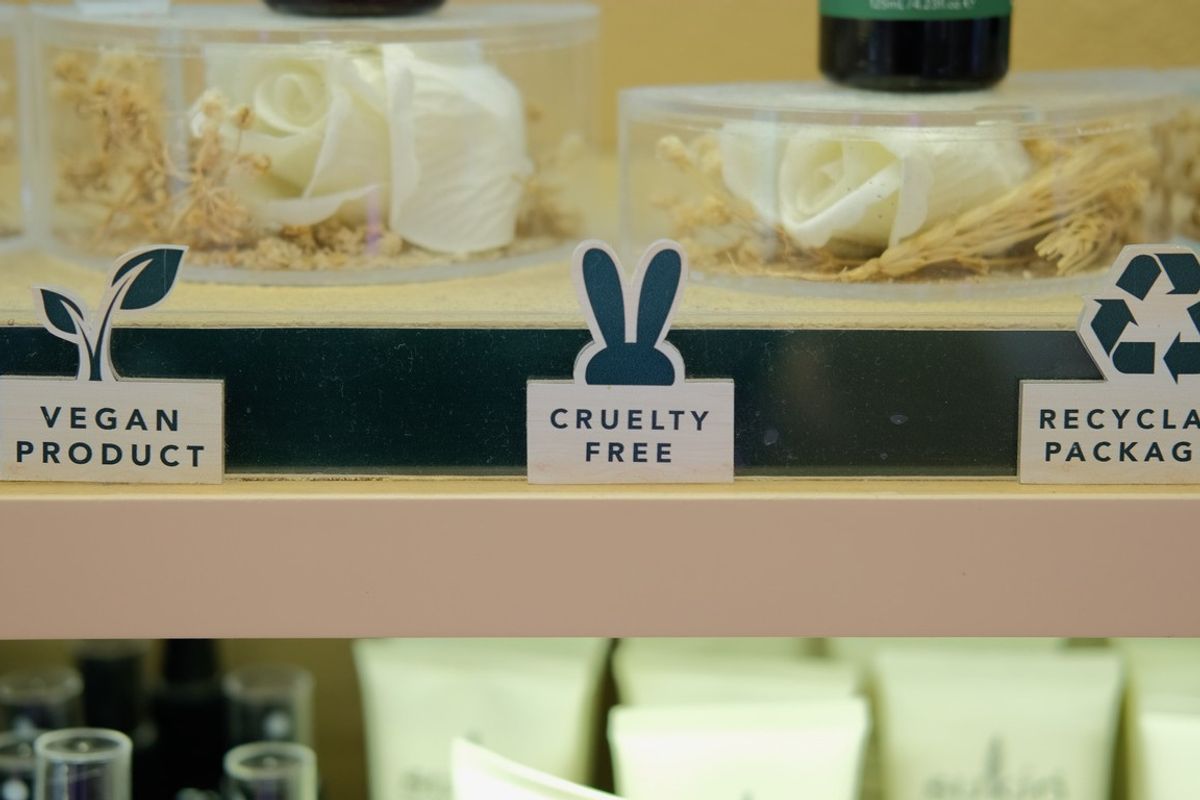The Food Standards Agency (FSA) has launched a campaign to raise awareness about the dangers of vegan food for allergen sufferers.
The campaign comes as new research released by the FSA shows that 62 per cent of people who react to animal-based products, or who buy for someone who is, are confident that products labelled ‘Vegan’ are safe to eat, which the agency said is incorrect and may be putting them at risk.
In response to these findings, the FSA campaign looks to support people who have an allergy to milk, eggs, fish and crustaceans or molluscs. The campaign encourages people with allergies, or who buy for someone who has, to always check for a precautionary allergen statement such as ‘may contain’, on products labelled 'Vegan' to decide on whether it’s safe to eat.
The research from the FSA has found:
- 54 per cent of those who react to products of animal origin have used vegan labelling to indicate whether a food is safe to eat at least sometimes when buying packaged food.
- 53 per cent of those who buy for someone with a food hypersensitivity to products of animal origin have used vegan labelling in this way at least sometimes when buying packaged food.
- 29 per cent of people who react to or buy for those who react to products of animal origin weren’t aware they should check for a precautionary allergen label on vegan products to inform a decision on whether it’s safe to eat.
“It’s concerning that so many people who are allergic to milk, eggs, fish and crustaceans or molluscs believe food labelled as ‘Vegan’ is safe for them to eat because they assume it doesn't contain products of animal origin,” Emily Miles, FSA chief executive, said.
“Unfortunately, the reality of food production means there is still a risk of cross-contamination with animal-based allergens in vegan and plant-based products if produced in the same factory as animal-based products.
“That is why, through our ‘Vegan Food and Allergens Campaign’ we are urging people to always check for a label such as a ‘may contain’ and have a conversation about their allergens with food servers and businesses.
“I hope this campaign will support people to have confidence in making food choices that are safe for them to enjoy.”
The campaign also explains how a free-from label, which is a food safety label, is different to a vegan or plant-based label. Vegan labels are used to support a dietary choice, and do not intentionally contain products of animal origin. Vegan food could still be prepared in areas alongside products such as egg, milk, fish, crustaceans or molluscs - whereas free-from foods are not.
To use a free-from label, food businesses must follow strict processes to eliminate risks of cross-contamination so that they do not contain any of the allergen that they claim to be free-from.
The campaign is being supported by the three main UK allergen charities - Allergy UK, Anaphylaxis UK and the Natasha Allergy Research Foundation and together the charities have said:
“Every day we hear from people with food allergies, and their families, who face difficulties when choosing food that is safe for them to eat. We hope that by raising awareness of the issue it helps people with food allergies choose food that is safe for them.
“This worrying research shows that many people with allergies to products of animal origin are buying vegan and plant-based food and assuming it is safe to eat, without taking further precautions to check the label.
“That is why this campaign is so important in highlighting the potential for cross contamination in vegan products.”
The Vegan Society is also supporting the campaign.
“Clear labelling is very important to people who follow a vegan diet, and accurate labelling is especially vital for people with food allergies,” Claire Ogley, head of campaigns, policy and research at the Vegan Society, said.
“Our Vegan Trademark shows products are vegan to our rigorous standards as far as is practical and possible, and that efforts have been made to avoid cross-contamination. However, it is essential that people understand that a ‘vegan’ label does not necessarily mean the product is ‘allergen-free’ and people with allergies should always check the allergen labelling on products before consuming them.”
Need for legal definition
Welcoming the campaign, the Chartered Trading Standards Institute (CTSI) has called for legal definition for vegan and plant-based food.
“CTSI’s recent policy report put a spotlight on the potential dangers for allergen sufferers and the need for a legal definition for Vegan and Plant-Based food as the ambiguity around these terms can have disastrous and sometimes tragic consequences for those with allergies to animal-derived products, like milk and eggs,” CTSI chief executive John Herriman said.
“Consumer education alone should be seen as a stop gap whilst we campaign for changes in the legal framework for selling food so that consumers can make informed choices, and food businesses have clarity about what the phrases means.
“The rise in demand for foods sold or promoted as ‘vegan’ or ‘plant-based’ has soared in recent years and with that has been a rise in complaints and incidents where consumers feel they have been misled by the use of such terms, for numerous reasons. There has also been an increase in those with animal-derived allergies choosing foods marked ‘vegan’ thinking they are safe for them to eat, only to suffer an allergic reaction. This shows a real need for a legal definition to give both consumers and businesses the clarity that is needed.”
The FSA recently updated its food labelling technical guidance for food businesses and industry. The update advises businesses to use a Precautionary Allergen Label (PAL) alongside a vegan label, if cross-contamination can’t be ruled out.


